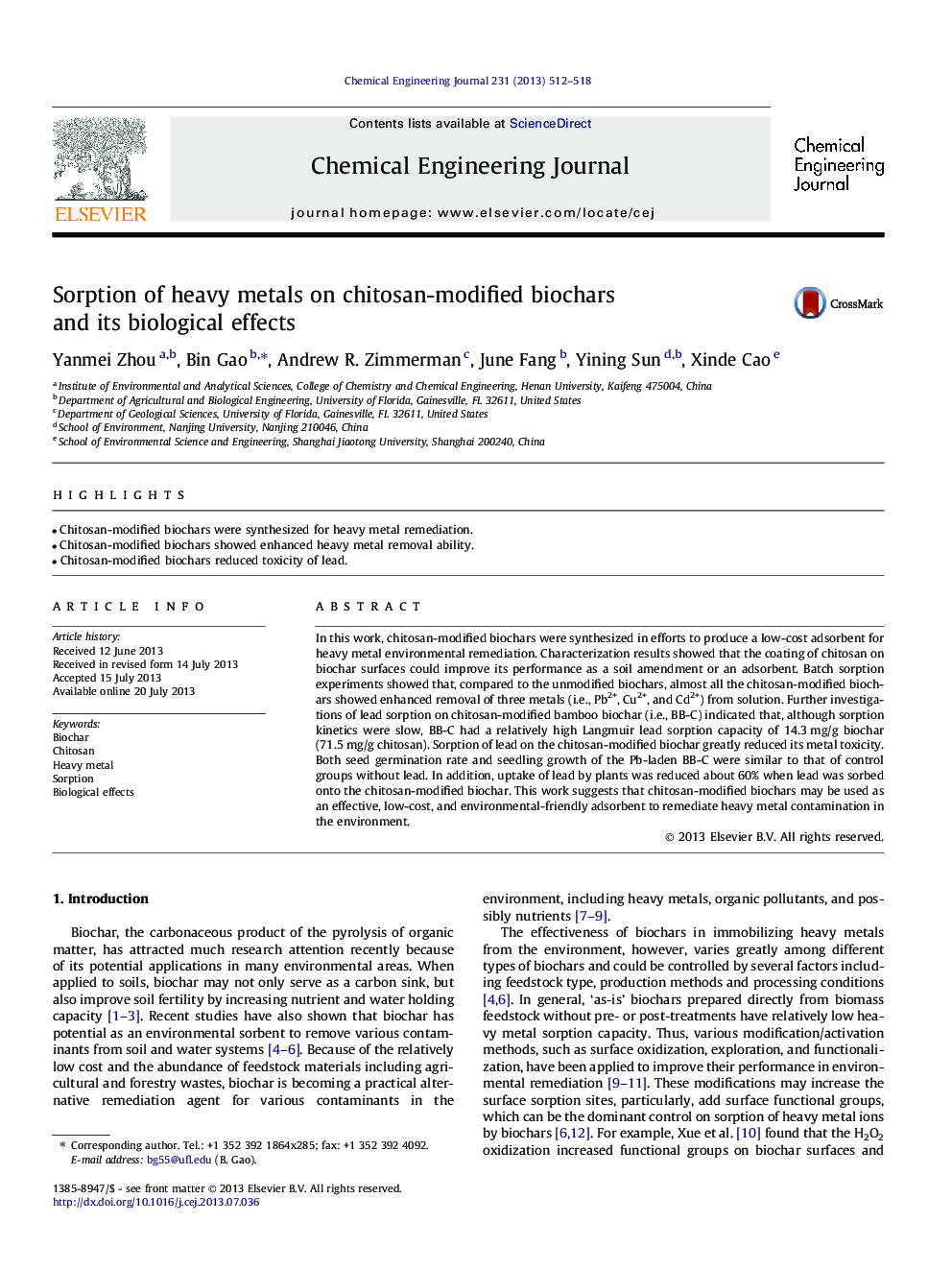| Article ID | Journal | Published Year | Pages | File Type |
|---|---|---|---|---|
| 148290 | Chemical Engineering Journal | 2013 | 7 Pages |
•Chitosan-modified biochars were synthesized for heavy metal remediation.•Chitosan-modified biochars showed enhanced heavy metal removal ability.•Chitosan-modified biochars reduced toxicity of lead.
In this work, chitosan-modified biochars were synthesized in efforts to produce a low-cost adsorbent for heavy metal environmental remediation. Characterization results showed that the coating of chitosan on biochar surfaces could improve its performance as a soil amendment or an adsorbent. Batch sorption experiments showed that, compared to the unmodified biochars, almost all the chitosan-modified biochars showed enhanced removal of three metals (i.e., Pb2+, Cu2+, and Cd2+) from solution. Further investigations of lead sorption on chitosan-modified bamboo biochar (i.e., BB-C) indicated that, although sorption kinetics were slow, BB-C had a relatively high Langmuir lead sorption capacity of 14.3 mg/g biochar (71.5 mg/g chitosan). Sorption of lead on the chitosan-modified biochar greatly reduced its metal toxicity. Both seed germination rate and seedling growth of the Pb-laden BB-C were similar to that of control groups without lead. In addition, uptake of lead by plants was reduced about 60% when lead was sorbed onto the chitosan-modified biochar. This work suggests that chitosan-modified biochars may be used as an effective, low-cost, and environmental-friendly adsorbent to remediate heavy metal contamination in the environment.
